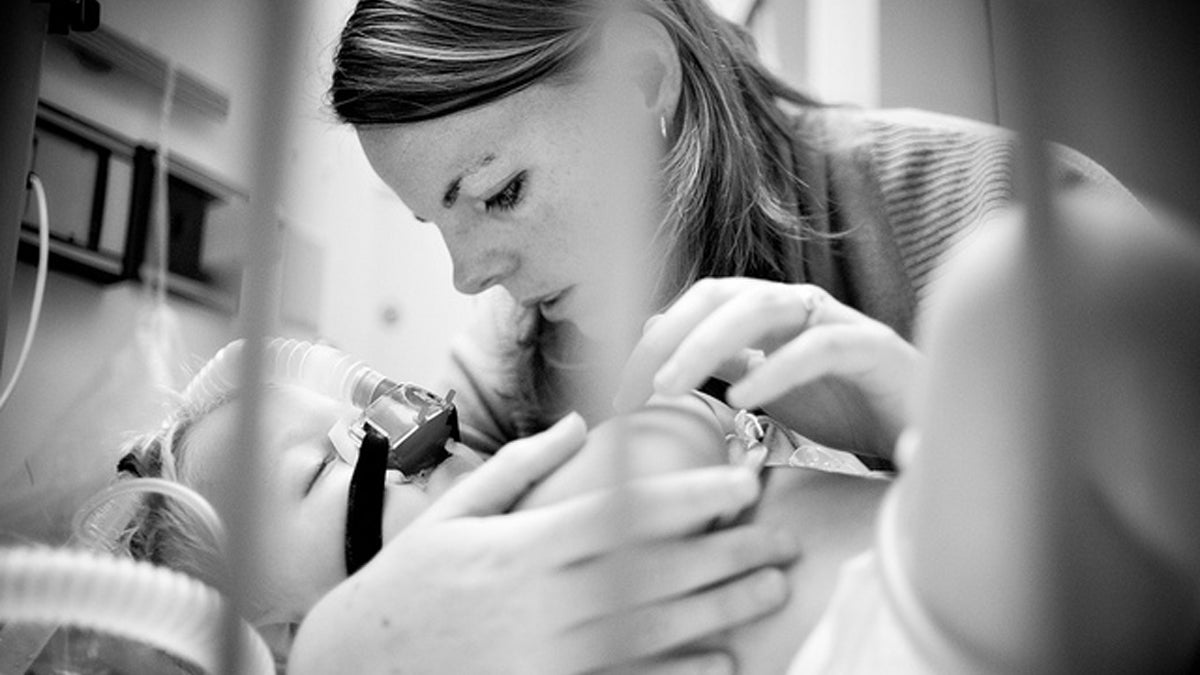Delaware families with chronically ill children find support and friendships in monthly group

(Image courtesy of the Owens Family)
When a child has a chronic, life-threatening illness, the whole family is affected. Parents, siblings — everybody has to adjust, and often, the stress can become overwhelming.
A support group at Nemours/Alfred I. duPont hospital for children helps families find relief, coping strategies, and a few laughs along the way.
Just getting out of the house can be a major challenge for the 28 families who are part of Chronically Cool Families. Many of the children are in wheelchairs, and need special equipment and monitors at all times. Some of the families brave long commutes to get to the monthly meeting, but they do it gladly to be with others who understand on a deeper level what their lives are like.
“It’s a roller coaster from the minute a lot of these kids are born,” said Nemours licensed clinical social worker Jennifer Fenstermacher who facilitates the meeting. “There’s a grieving process because their child is not quote unquote ‘normal,’ they may not walk, they may not talk.”
The group started in 2010 at the suggestion of the Owens family who had lost their young son Gavin to mitochondrial disease — a journey which had left them feeling isolated and alone.
“I think for us, having a child with a long-term illness, it was difficult to feel like we belonged anywhere,” said Adam Owens. “Friends could only relate so much, and this group gives you other families who know what daily life is like.”
Since their son’s death, the Owens family has adopted three children with special needs.
For 26-year old Megan Kelley of Dover, the group has been a life changer. Her daughter Madison Kate was born with a rare genetic disorder that has cause several life-threatening health issues as well as developmental delays.
“At some point I was just like, I can’t do this,” she said. “Friends are having kids the same age, it’s this happy time, and we’re listening to monitors beeping, letting us now she’s not breathing, running back to the hospital, it was very scary stuff.”
During one of the many hospital stays, a doctor handed her a flyer for Chronically Cool Families.
“At first the ‘chronically cool’ threw me, because it was letting me know that this was not going to get better, it was chronic.”
She was reluctant to go, as was her fiance, Elliott Tryce.
“I don’t seek a lot of help, just deal with it in my own way, and that’s how it works,” said Tryce, but the couple decided to give the group one try.
“We went to our first meeting and loved it,” said Kelley. “We left and I said to Elliott ‘what did you think?’ and he said ‘it felt good to feel normal!'”
As the parents talk, the kids play next door, and also address some of their challenges through play. The group has been a place where healthy siblings can discuss their frustrations, challenges, and stressors.
Social worker Jennifer Fenstermacher says organization and communication are key for families in dealing with the many challenges of having a sick child, as is being in the moment.
“The families that are really happy and healthy make the choice to accept it and live their lives full on,” she said. “They live life to the fullest, we have had families take their kids to Ireland, or rolling their mini ICU through Times Square.”
Megan Kelley says the support group and the connections she has made have helped her come to terms with her life – and appreciate the many blessings her daughter has brought to her life:
“I doubted my ability to love her properly and to care for her properly long ago, and now, I love her more every day, she has touched so many lives.”
WHYY is your source for fact-based, in-depth journalism and information. As a nonprofit organization, we rely on financial support from readers like you. Please give today.





